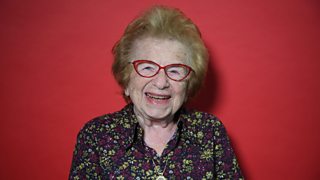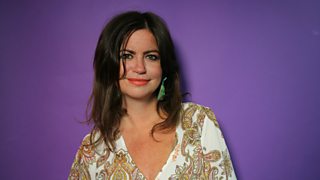True crime: Five reasons why women love it

We are currently inundated with true crime stories, whether TV documentaries about the Yorkshire Ripper, the murder of Jill Dando, the disappearance of Madeleine McCann, Netflix series such as Making A Murderer or podcasts such as Serial, The Teacher’s Pet and My Favourite Murder.
There’s a huge market for these real-life crime stories around the world.
The producers of the podcast Serial have said that its first series has been downloaded more than 175 million times and there are three dedicated true crime TV channels in the UK that reach over five million people a month.

In many of these areas the audience skews female. For example, the UK audience who watch TV on the true crime Sony Crime Channel are predominantly female, and the audience of the All Killa No Filla podcast about serial killers is 80-85 per cent female, according to its co-host Rachel Fairburn. A 2010 study also found that women enjoy true crime books more than men.
What is driving this obsession with true crime and why are women consuming more true crime than the opposite sex?
As part of a special programme on BBC Radio 4’s Woman’s Hour, Jane Garvey spoke to Julia Davis, editor of the recently launched Crime Monthly magazine, Dr Gemma Flynn, Criminologist at Edinburgh University and Rachel Fairburn, co-host of the All Killa No Filla podcast.
Here are five reasons why they think many women are obsessed with true crime.

1. Fear of crime
“There is certainly something that is driving women to consume true crime in large numbers”, says Dr Gemma Flynn, criminologist at Edinburgh University.
“It may well be connected to the very interesting contradiction that exists around fear of crime for women - that while women are far less likely to be a victim of crime, they are extremely likely to express high levels of fear of crime.
“When we experience heightened levels of fear we can often seek comfort in facing these issues head on. We have always turned to crime storytelling as a way to better understand the moral limits of our society. Perhaps for women there is a desire to satiate fear by turning to these stories.”
Julia Davis, editor of Crime Monthly magazine, agrees. “Women are fascinated by true crime because it’s a facing your fears thing.
“It’s knowledge is power. Your worst possible fear - understanding it, confronting it, knowing everything you can about it. That’s a major thing I hear again and again from women.”
“I think women love true crime because pretty much from the time that we’re very small, we’re told to be careful, look after ourselves, watch out for bad people, make sure we get home safely”, says Rachel Fairburn, co-host of the All Killa No Filla podcast.
“I think safety is always at the forefront of our minds and when we read about serial killers, murderers, true crime cases, I think there’s always an element of self-preservation there.”
Dr Gemma Flynn also believes that true crime media may be perpetuating this fear of crime.
“For me, there is something self-perpetuating about true crime media which claims to serve a demand, but in fact is contributing to a misconception that violent victimisation for women is likely and imminent.
“Really, if we were to follow the data on this issue, women should be walking men home at night. But certain forms of true crime that focus on serial killers and random acts of violence against women send the message that women cannot move through the world with the same freedom as men.
“Ironically, this fear is both perpetuated by true crime and may also be driving women towards this form of media.”

2. Compassion for victims
“As women tend to be predominantly the people who are victims of murders, I think there’s a huge element of compassion for victims”, says Rachel Fairburn.
“When we read a victim’s story, we see them as a person and learn more about them. There’s always a little bit of us that thinks, that could have been me, that could have been somebody I know, somebody I love.
“We do have a lot of compassion with the victims.”
For Julia Davis, women have an “emotional connection to true crime”.
“They put themselves in the position of the victim, the victim’s families, especially if the victim is a women and there’s a real emotional jolt and emotional reaction.”
3. A fascination with motives
“I think it’s natural to have an interest in things that are so horrific”, says Rachel Fairburn.
“Terrible murders should be so far out of the remit of anything that you would do, that you should have a natural interest in them to think ‘why would somebody do that? I wouldn’t do that. What has driven this person to do it?’”

4. True crime provides puzzles to work out
“Particularly with unsolved cases, people do like to be armchair detectives, they like to sit there and go, ‘I think this person did it’, or ‘this person didn’t do it because of these reasons’", says Rachel Fairburn.
Julia Davis agrees: “Women like to untangle things - they think a lot. I’m not saying men don’t, but they like to work things out, often think about things quite deeply and obviously there’s a big aspect of that in true crime, especially in unsolved, cold case type documentaries or podcasts. There’s a lot to think about.”
5. Escapism
“There is an element of escapism”, says Julia Davis.
“This might sound strange when you’re talking about crime, but it’s something that I think all women understand that although there’s a perceived threat of violent crime, often the reality is minuscule, thank God.
“I think women can allow themselves to escape into a very compelling, awful but exciting story and just enjoy it for what it is at a distance.”
You can listen to the full Woman’s Hour programme on true crime via @BBCSounds or the Woman’s Hour website.



